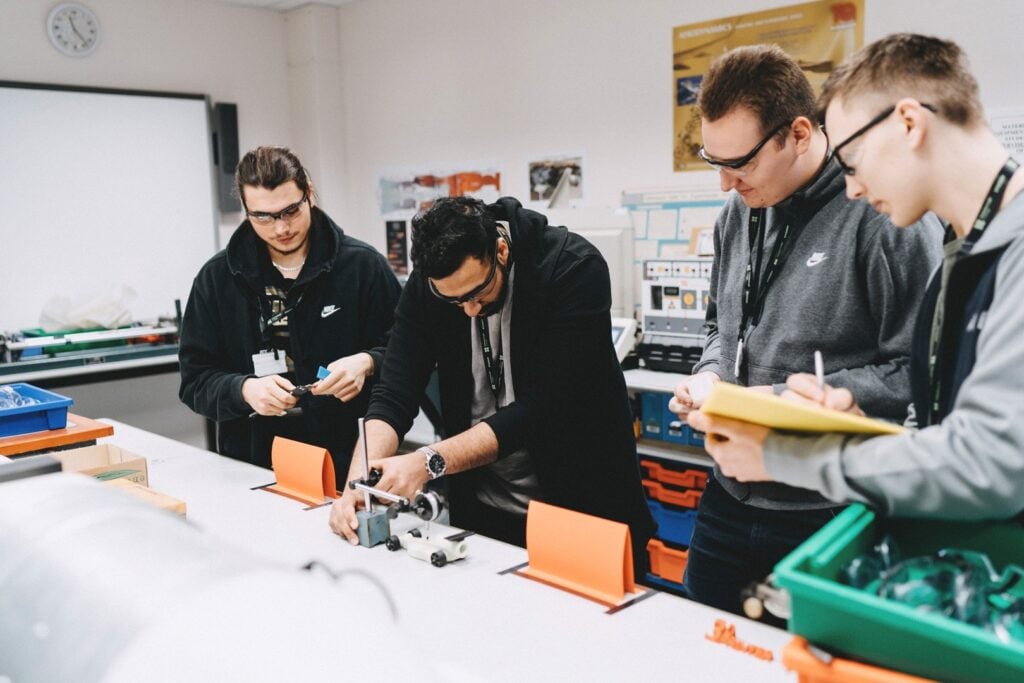Reality check:
As a Machinist you may be expected to do shift work. Your environment can be noisy and dirty. Standard tasks for Apprentices in the first 6 months of the Apprenticeship will include watching what skilled Machinists are doing and learning the basic skills in the toolroom/machine shop environment.
An Apprentice will work on average 37 hours a week however this may vary throughout the year dependent on seasonal trends and workloads. Engineering Apprentice average salary varies between £12,000 and £28,000 a year depending on skills and experience.
The course is a combination of academic knowledge – you will be working to A-Level standard for Maths and Science, and valuable hands on experience.
If you are considering a pathway to university this course would be a suitable stepping stone however it would also allow you to build your understanding from the shop floor which is invaluable for many employers.
As an employed status Apprentice you will:
Earn a wage – the national minimum wage for Apprentices is £6.40 per hour as of April 2024, although many Apprentices earn more than this. Please note you must be a paid employee of the business, you cannot be self-employed or a volunteer.
Have a contract of employment – this must be given to you at the start of your employment. • Get paid holidays – these will be detailed in your contract of employment.
Receive training – it is crucial to the success of your Apprenticeship that your employer supports you with regular training.
The Apprenticeship standard states you must complete a minimum of 20% off-the-job training which can also include training at Peterborough Regional College and training within the workplace. You will also be expected to build a portfolio and complete tasks on One-file and Google Classrooms.
